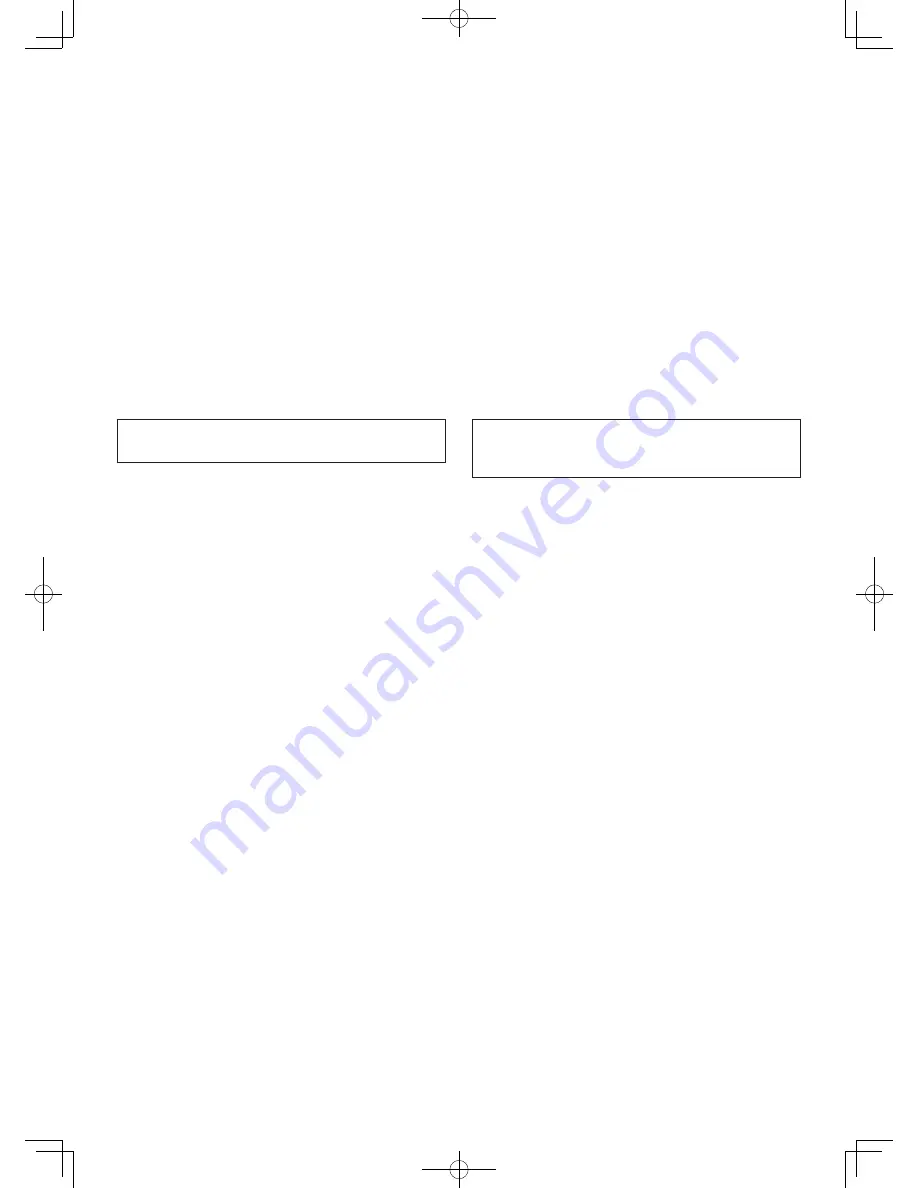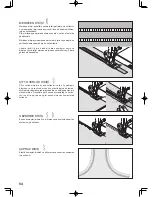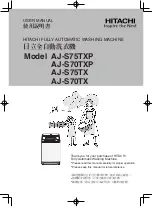
61
MOTIFS DÉCORATIFS
22 types différents de points décoratifs sont disponibles.
Voici quelques exemples d’utilisation et de couture de ces
points.
Vous pouvez aussi utiliser d’autres points de la même
façon.
* Effectuez une couture d’essai sur une bande découpée du
tissu que vous utilisez pour la couture pour vérifier le motif
à utiliser.
* Avant de commencer à coudre, vérifiez s’il y a assez de
fil bobiné sur la canette pour pouvoir terminer toute la
couture.
* Diminuez légèrement la tension du fil supérieur.
RÉGLAGES :Pied presseur - Pied pour point bourdon
:Réglage tension du fil supérieur - AUTO
CONSEILS POUR LES POINTS FANTAISIE
Motif croissant sur col
Ce point décoratif convient parfaitement à la couture des
manches et des cols des vêtements de femmes et d’enfants,
et permet aussi d’obtenir des bords plus propres.
Lorsque vous utilisez ce motif de points pour obtenir des
bords plus propres, coudre d’abord le point puis couper le
bord du tissu le long de la bordure des points. Veillez alors
porter attention à ne pas couper les points.
Pyramide sur galon biais
Utilisez une bande en biais et pliez le bord vers l’arrière.
Cousez le point pyramide par-dessus le bord plié.
Chevron sur revers
Ce motif peut être utilisé non seulement comme point
décoratif, mais aussi comme point d’arrêt triangulaire pour
renforcer les endroits susceptibles de s’effilocher facilement.
Ceci est particulièrement utile pour coudre les deux bords des
poches.
Domino sur galon biais
Utilisez une bande en biais et pliez le bord vers l’arrière.
Cousez le point domino par-dessus le bord plié.
Diamant sur ourlet étroit
Pliez le bord du tissu et utiliser ce point pour obtenir un bord
plus net.
Les points feston et les points diamant peuvent être combinés
pour créer d’autres points attrayants.
Suggestion utile: Pour obtenir une apparence plus
agréable, essayez d’utiliser un réglage de tension
légèrement inférieur (-).
DECORATIVE DESIGNS
22 different types of decorative stitches are available.
Following are examples of how to use and sew these
stitches.
You can use other stitches in the same way.
* You should carry out a test sewing on a cut-off strip of the
fabric being sewn to check the pattern to be used.
* Before starting to sew, check that there is enough thread
wound onto the bobbin to make sure that the thread will not
run out during sewing.
* Slightly loosen top thread tension.
IDEAS ON DESIGN STITCHING
Crescent pattern on collar
This is an ideal decorative stitch for the sleeves and collars of
ladies’ and children’s clothes, and also for table linen edges.
When using this stitch pattern for table linen edges, first sew
the stitch and then trim the edge of the fabric along the edge
of the stitch. Be careful not to cut the stitch at this time.
Pyramid on bias tape
Use bias tape and fold back the edge. Sew the pyramid
pattern on top of this.
Arrowhead on lapel
In addition to using this pattern as a decorative stitch, it can
also be used as a triangular backtack stitch for reinforcing
places which can easily unravel. This is particularly useful for
sewing both edges of pockets..
Domino on bias tape
Use bias tape and fold back the edge. Sew the domino stitch
on top of this.
Diamond on narrow hem
Fold over the edge of the fabric and use this stitch to tidy up
the edge.
Scallop stitches and diamond stitches can be combined to
create other attractive patterns.
SETTINGS :Presser foot - Satin stitch foot
:Thread tension control - AUTO
Helpful Hint: For a more pleasing appearance
experiment with a slightly lower (-) Tension setting.
















































